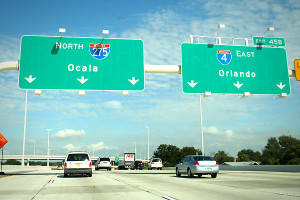-
J D Drennan
19310 W 6Th St, Orlando, OK 73073405-377-6671
-
Jo Wick
, Orlando, OK
-
Thomas Trentacoste
, Orlando, OK
How much is car insurance in Orlando, FL?
Car insurance coverage in Orlando is easily attainable and a requirement for all drivers. It is best to always compare quotes before making a decision to be sure you are getting the most competitive rates.
One of the simplest ways of comparing multiple quotes at once is to use a car insurance comparison tool, such as the FREE search tool above. Enter your ZIP code to start comparing rates in your area right away!
Choosing an Insurance Company
 When choosing an insurance company, examine the following things:
When choosing an insurance company, examine the following things:
- Financial stability of the insurance company
- Reputation of the insurance company in the area
- History of claims settlement
You can do this first by going to the website of A.M. Best, an insurance rating firm. You will have to acquire a visitor’s membership by entering your e-mail address and a password.
Upon acceptance of their terms, you will be able to type in the name of the insurance company and ascertain their financial rating indicated by a letter and a + or -. The rating of A or above is desirable.
A.M. Best also indicates the status of the company by indicating stable or not.
Reputation of the insurance company can be determined by asking your friends and neighbors. This also is the way you can determine the company’s history of claim settlement. Check the Better Business Bureau in your area to see if there have been complaints to them about any of the companies.
Limits of Liability and Financial Responsibility Required in the State of Florida
Every state has its own financial responsibility requirements necessary to license a car in that state. These limits can be determined by examining the statutes for the particular state. Florida requires the following limits of liability:
- Bodily Injury Liability – This pays for bodily injury to others legally mandated if you are involved in an accident. The limits required by Florida are $100,000 per person/$300,000 per accident.
- Property Damage Liability – This pays for property damage to the property of others legally mandated if you are involved in an accident. Florida requires $50,000 per accident.
- The total of property damage and bodily injury liability shall be no loss that $500,000 combined.
- $10,000 Personal Injury Protection (PIP) and $10,000 Property Damage Liability (PDL) as long as your automobile is licensed in Florida.
Explanation of Terms
The following terms are used often in the language of auto insurance:
Bodily Injury Liability – When you are involved in an accident for which you may be legally liable, this coverage will pay for bodily injury to others and the legal fees necessary to defend you in this case.
Property Damage Liability – If you are responsible for property damage as the result of an accident in which you are involved, this pays for the property damage to others and the legal fees necessary to defend you, if any.
Personal Injury and Property Damage Liability – This is referred to as “no-fault” insurance coverage. This type of insurance is unique to Florida and a handful of other states.
Unique Aspects of Car Insurance in Florida
 In 2003, the Legislature of Florida enacted a bill called the Florida Motor Vehicle No-Fault Law providing for no-fault insurance in the state.
In 2003, the Legislature of Florida enacted a bill called the Florida Motor Vehicle No-Fault Law providing for no-fault insurance in the state.
This bill required that the law be repealed effective October 7, 2007 if not renewed by the Legislature. The law did expire but was revived in a new legislative session later in 2007.
Florida’s No-Fault Law requires registered owners of motor vehicles to maintain Personal Injury Protection (PIP) with $10,000 limits to cover the owners, their passengers, and relatives residing within the same household.
This coverage and the no-fault law prevent tort litigation coming from motor vehicle accidents unless the injured person sustained significant and permanent injuries.
This no-fault coverage includes the same amount of compulsory property damage liability requirements.
A Brief Discussion of “No-Fault” Insurance
No-Fault insurance is confusing even to professionals in the insurance business because it is unfamiliar. Insurance in the United States has in the past been partially based upon an adversarial system.
That meant that it was okay to sue if your bodily injury or property damage caused by another person costs more than the limits offered by the insurance company. This led to individuals suing others for injuries caused and large awards being made as a result of car accidents.
Things such as ‘punitive damages’ and rehabilitation bills that cost more than that ordinarily paid were assessed.
Consumer advocates believed that this adversarial situation led to car insurance and the subsequent payments being regarded as a type of lottery in which individuals could be paid a great deal more than was reasonable in the event of an accident.
This, as a result, increased jury awards and insurance premiums. It was thought that “no-fault” insurance, which did not rely upon that adversarial system, would correct the abuses of the tort system.
There are several types of no-fault insurance laws. Florida has a verbal definition of what types of injuries are severe enough to allow a lawsuit (tort). Typically these injuries are such things as death, permanent disability or disfigurement.
Damage to property is usually treated as a no-fault situation. That is, damage to your car or other property is estimated, assessed, and paid for up to the limits of the insurance policy involved.
Damage to Your Own Property that May be Covered Under Insurance
An additional portion of an insurance quote covers possible damage to your own property that is your car. This is referred to as comprehensive coverage and collision coverage.
Ordinarily a deductible is applied to this coverage ranging from $100 per accident to over $5000 per accident depending upon the vehicle and the wishes of the owner.
Comprehensive coverage pays for animal damage, theft, vandalism, glass damage, weather damage (check policy restrictions), fire, and falling objects.
Collision coverage pays for collision, whether it is your fault or the fault of another driver.
How does all this fit into an insurance quote?
 When requesting an insurance quotation, have the following information available:
When requesting an insurance quotation, have the following information available:
- Names, dates of birth, license numbers for all drivers of your cars
- Year, make, model, of all the cars you own
- Usage of each car – commuting, business, etc.
- Limits of liability needed for your policy – $100,000 per person/$300,000 per accident bodily injury; $50,000 property damage; $10,000 PIP
- Requested deductibles for comprehensive and collision
Enter this information online into the insurance form provided by the particular insurance companies you have chosen. They will process the information and produce a quotation for the insurance, usually within fifteen minutes.
If you want to purchase the insurance, you will have to pay an initial deposit and agree to payments. You can pay for the policy in full, however.
Comparison Shopping Pays
Comparison-shop with at least two different companies to determine if you’re getting the best deal on car insurance. An example of this is as follows:
We requested an insurance quote for a 54-year-old woman who is widowed, lives in Orlando, and commutes 25 miles four days a week. She is an RN and has no tickets on her driver’s license. This individual will pay $1,918.00 per year with one insurance company and $1,530.00 per year with another.
Insurance company’s rates vary from company to company depending upon their statistical experience with classes of individuals, types of cars, and areas of the country.
You will find that it is economical to take the time to check insurance rates with other companies in your area at least once a year to determine if rates vary a great deal.
If the rate dichotomy is not large and you’re happy with your current insurance company, you may wish to stay where you are. Some insurance companies give discounts and benefits for individuals who demonstrate loyalty; whereas some do not. Assess the costs of changing companies carefully.
Checking the financial ratings of the insurance companies also to determine if your company has maintained its financial integrity. A massive disaster such as a hurricane can weaken the financial stability of an insurance company and make them less desirable.
Be sure to check out the FREE comparison tool at the top of this page by entering your ZIP code in the box. You can easily compare quotes from multiple auto insurance companies in your area.

